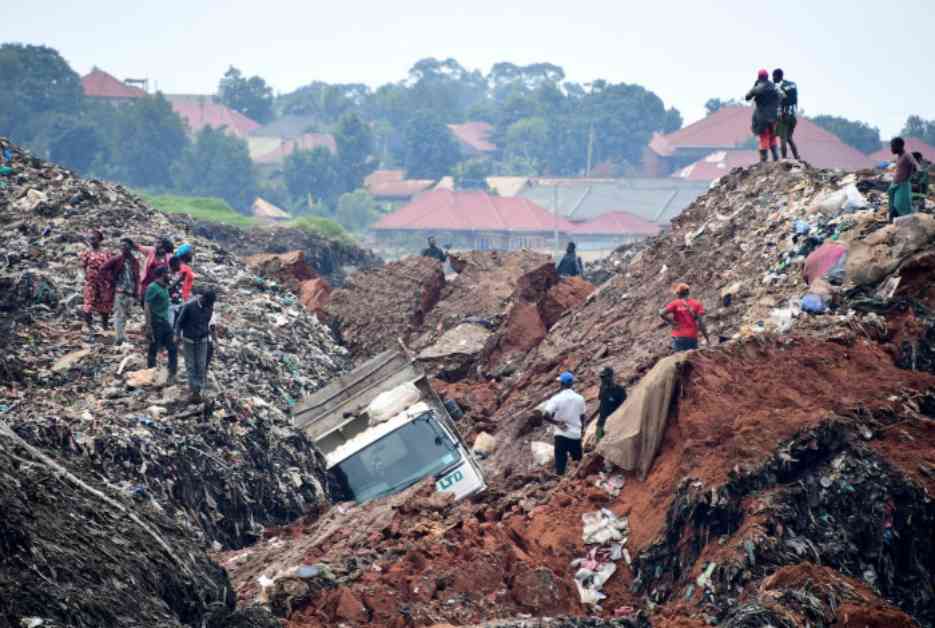The tragic landslide at the Kiteezi landfill in Uganda’s capital, Kampala, has left a devastating toll on the community, with the death toll now reaching 26. As rescue efforts continue, 39 people still remain missing after heavy rains caused a mountain of garbage to collapse, burying homes and residents as they slept. The scale of this disaster has shocked the nation and highlighted the urgent need for better waste management practices to prevent such tragedies in the future.
Search for Survivors and Victims
Volunteers and emergency responders have been working tirelessly to search for survivors and retrieve the bodies of those who lost their lives in the landslide. The scene at the landfill is one of devastation and heartbreak, as families wait anxiously for news of their missing loved ones. The task of excavating through tons of debris is daunting, but rescuers are determined to bring closure to the affected communities.
The police have been leading the search and recovery efforts, with the grim task of identifying and documenting the victims. The process has been challenging, with the treacherous conditions at the landfill making it difficult to access certain areas. Despite the obstacles, the commitment of the rescue teams to find every missing person is unwavering.
Environmental Concerns and Waste Management
The Kiteezi landfill has long been a source of contention among local residents, who have raised concerns about the hazardous waste polluting the environment and posing a danger to their health. The tragedy that unfolded has underscored the urgent need for better waste management practices in Uganda. Proper disposal of garbage, recycling initiatives, and sustainable waste management systems are crucial to prevent similar disasters in the future.
The landfill in Kampala has served as the primary waste dump for the city for decades, highlighting the lack of adequate infrastructure and resources for proper waste disposal. The accumulation of garbage over the years has created a ticking time bomb, waiting to unleash its devastating consequences on the unsuspecting residents living nearby. It is imperative for authorities to address these environmental concerns and prioritize the well-being of the communities affected by such negligence.
Lessons from Past Tragedies
The landslide at the Kiteezi landfill is not an isolated incident in Africa, where poorly managed waste disposal sites have led to catastrophic consequences. In 2017, a similar tragedy occurred in Ethiopia, where over 115 people lost their lives in a garbage landslide. These incidents serve as stark reminders of the urgent need for better waste management practices and environmental regulations to protect communities from harm.
The lessons learned from past tragedies must inform future policies and initiatives to prevent such disasters from recurring. It is essential for governments and local authorities to invest in sustainable waste management systems, recycling programs, and environmental protection measures to safeguard the well-being of their citizens. The lives lost in these preventable disasters should not be in vain but serve as a wake-up call to prioritize the health and safety of the population.
As the search for survivors and victims continues at the Kiteezi landfill in Uganda, the nation mourns the loss of those who perished in the landslide. The resilience and unity of the community in the face of this tragedy are commendable, as they come together to support each other and rebuild their lives. It is a testament to the strength and spirit of the Ugandan people, who refuse to be defeated by adversity and hardship.
In conclusion, the landslide at the Kiteezi landfill in Uganda serves as a tragic reminder of the consequences of neglecting proper waste management practices and environmental protection measures. The loss of lives and devastation caused by this disaster must prompt immediate action to prevent similar tragedies in the future. It is a call to action for authorities, policymakers, and communities to work together towards sustainable solutions that prioritize the well-being of the population and the protection of the environment.




















